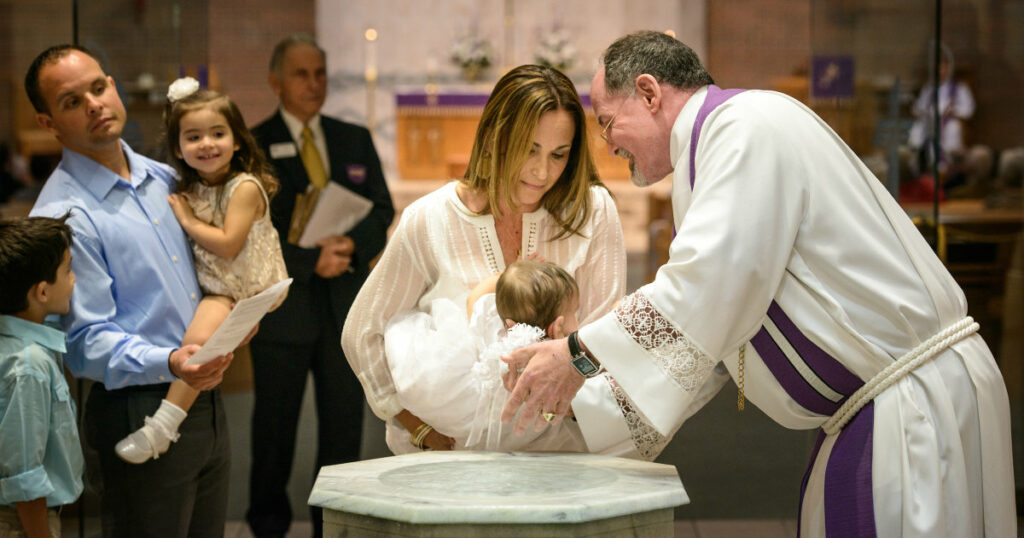by Scott Stiegemeyer
It has been often remarked that, in Christian churches across America, Mother’s Day is the second best attended worship service next to Easter. Many Christians who pay scant attention to the Church Year will observe Mother’s Day with religious devotion. They may never hear about Epiphany or Pentecost, but they do expect a special Mother’s Day message on the second Sunday in May. Despite this interesting state of affairs, Mother’s Day remains a secular holiday, not a sacred one. So each year — as it did again this year in many congregations — the question arises: How much attention, if any, should churches pay to Mother’s Day?
There will be differing opinions, but one thing is clear: Quasi-religious schmaltz that exists only to tug the heartstrings can be a distraction in church from the things that are of ultimate importance. The center of every Lutheran service is and must be Christ and Him crucified. Let’s let nothing, no matter how wholesome, obscure the Gospel.
That being said, I believe we should take a little time to bless the mothers in our congregations, to thank them, pray for them, encourage them and support them.
Mothers play a vital role in church and society — a reality the world seems to despise these days. Very often, mothers are at the forefront of handing the faith down to the next generation. As Paul wrote to Timothy: “I am reminded of your sincere faith, a faith that dwelt first in your grandmother Lois and your mother Eunice and now, I am sure, dwells in you as well” (2 Timothy 1:5). In the Church, a mother’s influence can extend far beyond her biological family. Paul says in Romans 16:13: “Greet Rufus, chosen in the Lord; also his mother, who has been a mother to me as well.” In some way, God used this unnamed woman to nurture, to mother, the great apostle Paul. Let us be grateful for all the mother-figures in our lives — whether they’re related to us by blood, or faith, or both.
There is a spiritual reason to remember Mother’s Day as well. In these dark latter days, there is much confusion about the meaning of sexuality and family. While the Devil attacks marriage and children, the Church can stand firm on God’s Word and resist the siren’s song that leads to destruction. In particular, our ancient enemy hates pregnant women, remembering always God’s primordial promise that the seed of the woman would strike the serpent’s head and that a pregnant mother gave birth to the Savior who spelled his doom. It is thus fitting and right to give thanks to God — on Mother’s Day and at all times — for the blessed motherhood of Mary, for our spiritual mother the Church and for all mothers who honor God with their lives by bearing and nurturing children.
This isn’t to say that Mother’s Day is all happiness and roses. We should remember that it can be uncomfortable for a lot of people. Some of us might not have sweet memories of loving Christian parents. Perhaps others have lost their mothers or been estranged from their children, making the day an acutely stinging reminder of their absence. Others desire to become mothers and fathers but remain bereft of children. These may never receive homemade cards and crayon drawings to post on the fridge, and this loss can be as painful as death. So pastoral sensitivity is certainly called for.
Still, Mother’s Day represents a powerful opportunity to bless something good and beneficial in this polluted world. Our mothers are imperfect, like all people, but God has honored motherhood in the incarnation of His one eternal Son and continues to use faithful women to build His Kingdom.
On Mother’s Day, then, don’t forget to tell Mom you love her. (Actually, do this every day.) Make her a homemade card and sit next to her in church. More than this, though: Mobilize your congregation to assist a local crisis pregnancy center. Offer to babysit for the single moms in your community. Help organize meals for families with newborns. Especially if your own mother is far away, spend time getting to know the older women in your congregation and your neighborhood.
And in all these things, remember with awe that the Creator once chose a humble virgin to become a mother and be the means for bringing His saving presence into the world.
The Rev. Professor Scott Stiegemeyer teaches bioethics and theology at Concordia University, Irvine, Calif.






